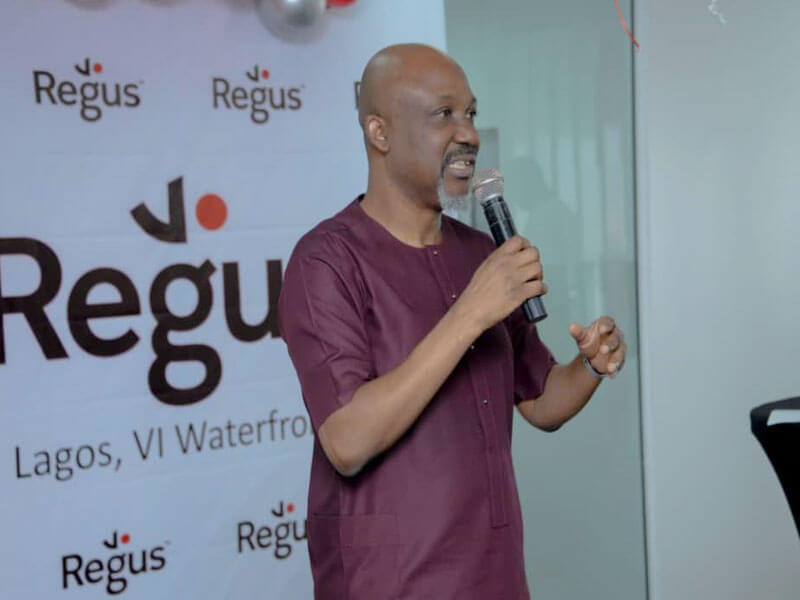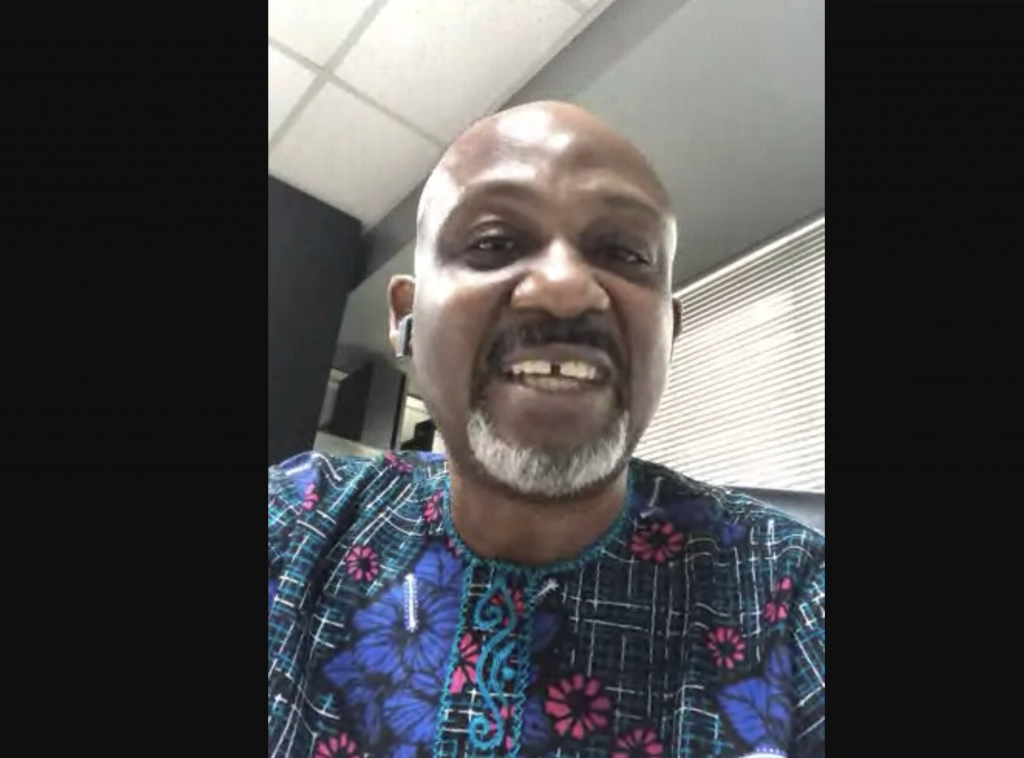2020 was unique for many unpleasant memories especially for many business leaders across the globe. That explains the excitement with which many ushered in the new year at the end of December.
Many businesses lost prospects, revenue streams dried up and many jobs were lost as a result. But one of the broadest effects of the pandemic has been an acceleration of technology adoption at work and at home. This era also boosted the technology sector in many ways as technology became the main driver of a world where people realized that a video call can replace a costly business trip.
2020 was a sort of double-edged sword.
Thinking about the impact of 2020 on the rest of our lives as it relates to business, I became interested in what entrepreneurs could do to better position themselves to become the Zooms of 2021 or at least survive a similar economic shock if it happens again.
Because we can reasonably expect that the positive and negative effects of 2020 will linger well into 2021 and beyond, I approached a seasoned entrepreneur for answers.
Meet Mr Ayo Akinmade
Mr Ayo Akinmade is the Executive Vice Chairman of Regus in Nigeria. He has held this position since November 2016 when he merged his Regus franchise operations with its global operations. Before then, he had operated his Regus franchise from 2007 to 2016, covering operations in Nigeria and Ghana, with locations in Lagos, Abuja, Port Harcourt and Accra.
He has over two decades of investment experience in West African markets, managing business interests across E-commerce, oil & gas, IT and financial advisory Services.


He began his career with PricewaterhouseCoopers (PwC) and worked in value management and audit roles with Milk Marketing Board and Milk Marque Ltd. He was also a change management consultant for over five years, working with companies such as Ryder Plc and British Airways.
Mr Akinmade serves on the board of several businesses including Mallforafrica, Frontier Capital, Savant Integrated Services Ltd, Doheney Services Ltd, Saro AgroSciences Ltd, Blueprint Business Technologies Ltd amongst others.
Q: Owing to the COVID-19 pandemic, a number of businesses went remote/partly remote. What approach should entrepreneurs embrace in 2021?
Before now, employees especially in Lagos spend about 3-4 hours daily commuting from and to work. Many get to the office tired and maybe less productive. The work-from-home regime has made many conscientious employees put these productive hours to use and this had led to increased productivity for many companies.
Mind you, coming to work does not equal productivity. People can come to work physically and still not perform their duties to their best.
The only negative with remote work is the absence of team bonding if everybody works from home. So, you have to take active steps to ensure people get to bond and talk. It might be in form of weekly or monthly meetings or parties.
In all, remote work is best if you have a structured environment with the right support from the employer and a disciplined workforce. The benefits are not only for the employers who will get more output but for employees that will get to work at their pace.
You only need to support your team with infrastructure that will enable efficiency i.e to provide data, power etc.
Q: Depending on who you ask, Nigeria’s inflation rate is between 13-33%. That places a strain on the earnings of the average earner. Now, companies have the twin cross of dwindling earnings and the need to increase the salaries of workers. How should entrepreneurs navigate that bend?
It is a difficult one. Margaret Thatcher said a very long time ago that “Inflation is that thief in the night that comes to take your money while you are working hard”.
What she mean’t is that is if you earn N100 in 2020 and your income is the same in 2021, you are poorer. This is because if the inflation rate is 13%, your N100 can only buy N87 worth of value. That is the reason employees want more money because they need to live the same standard of life.
Many employers understand this but they do not have the money to match the demands. If you are in this box, the first thing to do is to be honest with your financials. Show your employees what your capacity is.
Then, you show them the plan: “When we get to this level of income, we will do X”. You should promise only what you can deliver with a certain date and target. And, when they get the revenue, you must deliver on your own side of the bargain.
But to be honest, any employer that promises to match inflation in full is not being honest. What I have done in the past is that after maybe 2 years when we have gone past the trying times, we come back to compensate employees who stood by us with bonuses.


Q: How should entrepreneurs (especially tech) inoculate their businesses against the value depreciation that comes with this aggressive Naira devaluation?
There is no magic bullet for this. There are 2 sides to financial stability: the volume of money coming in and the volume going out. You have to look out for ways to increase the volume coming in and look at the expenses you can stream out.
For revenue increase, you need to know that many customers will not want to increase spendings during this period. So, what you can do is to increase by a slight margin first. That will squeeze your profit margin for now. But, when things bounce back (as they would) you can go up to your true value.
If you insist on your asking at this period, you may lose out. This is because they are many other businesses out there that are willing to do it at the rate you have refused.
Also, you need the not so profitable jobs not only for cash flow but to maintain what I call “the work rhythm”. I give an analogy of the glass company. When they pass a glass through the furnace and there is no one to take it, they will break it up and take it through again. This is because it takes a while to get the furnace to capacity. They can’t afford to shut down.
The same goes for every company. If you let people go or allow them remain idle for long because you are insisting on a particular price to do jobs, you will find out that by the time you come back to normal, the dynamics and the work rhythm of the company will be lost.
This is a very difficult decision but most realistic companies trade-off some margins for a while. But you have to be realistic and not trade yourself to death.
Determine your pain threshold and how long you can hold. Then, let the customer know that they are underpaying for the value you are delivering. And, that you are doing it in best faith in hope that when things get better, they will measure up.
Q: What should be every entrepreneur’s relationship with FX in 2021? A lot of tech companies transact locally in Naira but pay for most infrastructure in Dollars.
That is a million-dollar question. Here are about 4 strategies you can employ to protect yourself:
- First, when billing the customer for a product or service, calculate your cost using a slightly forward exchange rate. For instance, if the exchange rate is N470 to $1 today and it will take 60 days to complete the project, it won’t be wise to determine your cost by N470. Assume maybe N500 or N480 for the Dollar bit of the transaction.
- Two, Segment the dollar component of the project. For instance, you can say that for this N100 project cost, N60 of it is a foreign component for which I will pay in Dollars. You can agree with the client to partially pay for the project in Naira and Dollars for the different component. In fact, for transparency sake, you can ask the client to pay directly to the vendor charging in FX.
- The third way is to agree with a financial institution that is providing the financial component on a certain FX rate up to the period when the project will be completed. For instance, if the Dollar is 470 now and the project will last for 90 days, you can agree with your financial institution to hedge the exchange rate at N480 for the entire period. So, if the rate is N500 or N450 by then, you will still get it at the agreed N480.
Aside from these 3 methods, I always advise that businesses that have constant FX need to look to buy FX as soon as they have Naira inputs. If they don’t, when the time comes and they need FX they won’t be able to use their Naira or the Naira would have lost some value.
I must point out that is different from FX speculation i.e. buying Dollars for keep for the sake of saving. This is saving your money in the currency you have to spend it in.
Q: What is your take on Bitcoin?
Unfortunately, I am old-school, so I don’t know. It is not like I don’t know what Bitcoins are, technically. It is that I am traditionalists in that I believe that money should be regulated by central banks.
So, I will tell you a bit about the history of money. People used to transact by shells and other currencies. Then, they moved to the gold standard and later to the paper money.
So, if you hold a $100, the note says a hundred dollars but at the back of the note is written: “promise to pay”. That piece of paper means that if you take that to the US reserves, you will get a hundred dollars worth of gold.
So, world over, currencies are based on the promise that whosoever issues that currency (Bank of England, Central Bank of Nigeria etc.) are standing as the guarantor for that money. There are known authorities that you know where they are at. You can approach them at any time, place your tender and get your value.
So far, I don’t know of any such authority for Bitcoin. We don’t know if the values that are quoted are backed. And Warren Buffet says: “Only invest in simple businesses’ that you understand”.
Q: What important financial trends should entrepreneurs watch out for in 2021?
Analyse your environment. You have to be conscious about every bit of the environment you are playing in, in 2021.
If you see luxury bags and shoes and people are getting poorer, that means there are fewer people to buy what you see. If there are insecurity and political strife around you, they will affect your business, or your customer or key staff may be affected.
So, the key is to be watchful of everything. But don’t be watchful to the extent that the fear will paralyse you. Instead, let the analysis of the environment help you to begin to prepare for possible eventualities.
For instance to combat FX challenges, you can begin to think of selling your services to customers outside of the country to get FX.
Ask yourself, what killed previous competitors? How will technology affect my business? How is consumer taste changing?
Q: Thank you for your time sir
You are welcome David.






